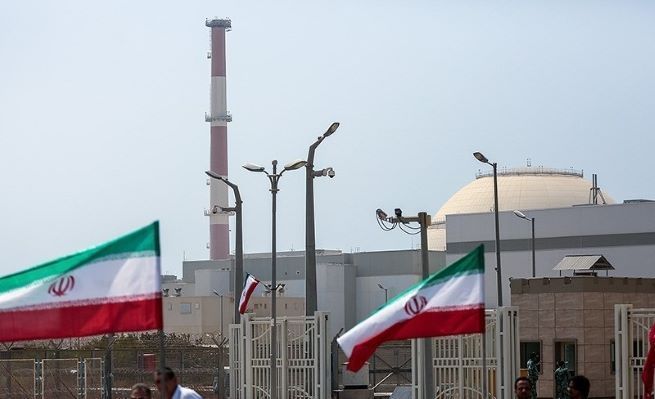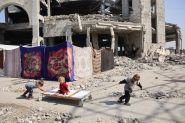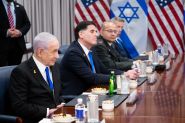- Home
- Middle East
- Iran Considers Nuclear Weapons 'Unacceptable', FM Says

Boushehr nuclear power plant on Iran's Persian Gulf coast ©AFP
Foreign Minister Abbas Araghchi said Saturday that Iran considers nuclear weapons "unacceptable," reaffirming the country's longstanding position amid delicate negotiations with the United States.
Western governments have long suspected Iran of seeking to develop a nuclear weapons capability to counter the widely suspected but undeclared arsenal of its arch-foe, Israel.
"If the issue is nuclear weapons, yes, we too consider this type of weapon unacceptable," Araghchi, Iran's lead negotiator in the talks, said in a televised speech. “We agree with them on this issue."
Araghchi's remarks came a day after US President Donald Trump said Iran "cannot have a nuclear weapon" while expressing hope of striking a deal soon.
On Thursday, Araghchi hit out at what he called "media speculation" that the two sides were close to an agreement, saying he was "not sure if" a deal is "imminent."
Iran has held five rounds of talks with the United States in search of a new agreement to replace the deal with major powers that Trump abandoned during his first term in 2018.
No date or venue has yet been announced for the next round but Araghchi said Wednesday he expected an announcement from mediator Oman in the "next few days."
The two governments are at odds over Iran's uranium enrichment program, which Washington has said must cease but which Tehran insists is its right under the nuclear Non-Proliferation Treaty.
'Very Good Talks'
Nonetheless, Trump said Wednesday that "we're having some very good talks with Iran," adding that he had warned Israeli Prime Minister Benjamin Netanyahu against striking its nuclear facilities, as it would not be "appropriate right now."
Israel has repeatedly threatened military action after pummeling Iranian air defenses during two exchanges of fire last year.
Trump has not ruled out military action but said he wants space to make a deal first and has also said that Israel, and not the United States, would take the lead in any such strikes.
Trump adopted a "maximum pressure" policy against Tehran after abandoning the 2015 agreement and reimposed the sweeping sanctions that the deal had lifted in return for UN-monitored restrictions on Iran's nuclear activities.
Iran continued to honor the agreement for a year, but then began rolling back its own compliance with its terms.
Iran has since built up the largest stockpile of highly enriched uranium of any state without a nuclear arsenal.
The uranium is enriched to 60 percent, still short of the 90 percent threshold needed for a nuclear warhead but far beyond the 3.67 percent limit set by the 2015 agreement.
In recent days, Tehran has said that if a deal is reached, it may consider allowing US inspectors to join the teams from the UN nuclear watchdog monitoring compliance with its terms.
Nuclear chief Mohammad Eslami said Iran "will reconsider accepting American inspectors through the (International Atomic Energy) Agency" if "an agreement is reached and Iran's demands are taken into account."
AFP
Read more



Comments